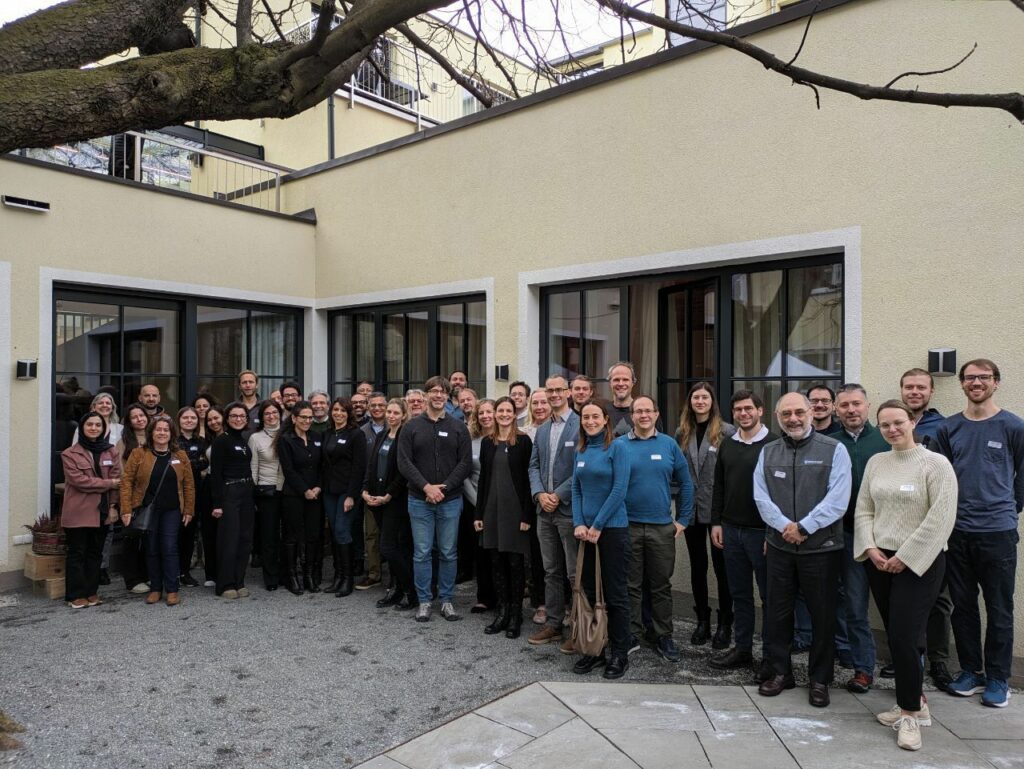Kick-off of new EU Horizon Europe project dAIbetes: Digital Twins Should Improve Treatment of Type 2 Diabetes
During the kick-off meeting in Innsbruck in the end of January, the strategic research program was refined, and a detailed short-term implementation plan created. SBA Research participated in the meeting with Anastasia Pustozerova, Andrea Siposova, Daniela Martinez, and Rudolf Mayer.
In a significant stride towards advancing precision medicine, a consortium coordinated by Prof. Dr. Jan Baumbach from the University of Hamburg (Germany), with 13 partners from seven countries, has been awarded a prestigious Horizon Europe grant to develop a cutting-edge federated health data infrastructure. The project, named “dAIbetes“, focuses on leveraging virtual twins as prognostic tools in personalized disease management, specifically targeting treatment outcomes in type 2 diabetes. The project started on 01 January 2024.
To develop virtual twins as prognostic tools for precision medicine the partners of dAIbetes will integrate extensive datasets from diverse sources, all while respecting privacy legislation. To this end, the project employs federated learning — a privacy-enhancing computational technique that allows the training of AI models on distributed datasets that stay behind safe firewalls at all times and are not uploaded into a cloud. This approach safeguards sensitive patient information while enabling effective use of big data.
In pursuit of its objectives, dAIbetes aims to achieve personalized prediction of treatment outcomes for patients living with type 2 diabetes — a prevalent condition affecting 1 in 10 adults globally, with annual expenditures of around 893 billion EUR. The partners will harmonize data from approximately 800,000 type 2 diabetes patients across four cohorts distributed across the globe in a specialized federated database network and use it to train prognostic virtual twin models. After validation, these models will be applied in real-world clinical practice through a dedicated software. Ultimately, the results will aid to alleviate the current lack of guidelines for expected treatment outcomes for specific patients, while the developed software platform will act as a model for the next generation of patient registries.
dAIbetes brings together a multidisciplinary consortium with expertise in artificial intelligence, software development, privacy protection, cyber security, as well as diabetes and its treatment. The collaborative effort aims to create a blueprint for overcoming the antagonism of privacy and big data in cross-national diabetes research and beyond.
The consortium is committed to advancing the frontiers of medical research, ultimately improving patient outcomes and contributing to the global development of precision medicine.
SBA Research is responsible for the technical parts of the data protection impact assessment, and the overall data security and privacy aspects within the project. We will further coordinate the task on making the digital twins explainable.
